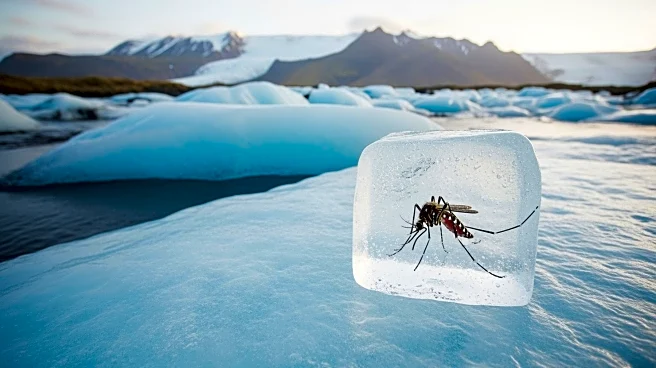What's Happening?
Mosquitoes have been discovered in Iceland for the first time, marking a significant change for the country known for being mosquito-free. Entomologist Matthías Alfreðsson from the Natural Science Institute
of Iceland confirmed the sighting of three Culiseta annulata mosquitoes near Reykjavik. The discovery was made by citizen scientist Björn Hjaltason, who captured the insects and sent them for identification. The presence of mosquitoes in Iceland is attributed to rising temperatures, longer summers, and milder winters, all effects of climate change. Iceland has been proactive in combating climate change, having opened a large carbon capture facility and the world's first direct air capture plant.
Why It's Important?
The appearance of mosquitoes in Iceland is a stark indicator of the broader impacts of climate change, affecting regions previously considered immune to such changes. This development could have ecological and health implications, as mosquitoes are known carriers of various diseases. The introduction of mosquitoes may necessitate new public health measures and monitoring to prevent potential outbreaks. Additionally, it underscores the urgency for global climate action, as even remote and previously unaffected areas are experiencing changes due to global warming.
What's Next?
Further monitoring is planned for the spring to assess the spread of mosquitoes in Iceland. This will help determine whether their presence is a temporary anomaly or a permanent change. The country may need to implement measures to control mosquito populations and prevent disease transmission. The situation could prompt increased international collaboration on climate change mitigation strategies, as Iceland's experience highlights the interconnectedness of global ecosystems.
Beyond the Headlines
The discovery of mosquitoes in Iceland could lead to a reevaluation of ecological assumptions about the region. It may also influence scientific research on mosquito adaptation to colder climates, potentially leading to new insights into their biology and behavior. This event could serve as a case study for understanding the broader impacts of climate change on biodiversity and ecosystem dynamics.









